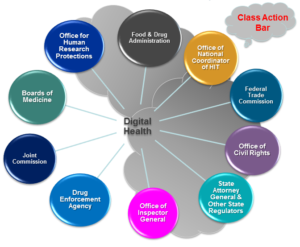A recent McDermott roundtable on European health private equity generated key insights into the future of medtech, digital health, and data analytics, and identified opportunities for companies and investors.
Digital health solutions are widely considered to be the next big growth market. Healthcare lags significantly behind other industries when it comes to digitization, but the potential opportunities are driving developers, healthcare providers, and investors to find solutions.
PATIENT CARE
A key point to bear in mind about healthcare technology is that success and adoption may often be measured by the quality of the users’ experience, the resulting clinical outcomes, short and long term cost savings, and the resulting margin for both investors and the health care system at large. These multi-faceted goals are best illustrated by the demands for i) greater efficiency, and ii) better patient outcomes.
Efficiency is typified by, for example, streamlined bookings and appointment reminders, algorithms that triage patients to ensure they are seen by the right person at the right time, and in-home patient monitoring after patients are discharged. Patient take-up is also an excellent gauge of efficiency, for example, a high tech product that measures and reports blood sugar is of no value if the interface is too complicated for an older population.
Better outcomes result from clinicians gathering and using data to determine the right treatment in the fastest possible time, and are demonstrated, for example, by permanent lifestyle changes, improvements in self-care or care outside hospital,accurate drug dosage and use of medicines, and, in direct contrast with other sectors, reduced, rather than increased, service usage.
PRIVACY AND REGULATORY HURDLES
One of the most obvious challenges inherent in digital health is data privacy and security. Stemming from that are issues relating to control of the data, the right to use it, and ownership of the analysis. The most successful companies are those that, from the very beginning, understand the regulatory landscape in which they are operating; are transparent in terms of where their data comes from; make clear the type of data at issue, be that identifiable, pseudonymized, anonymized, or something in between; and identify who will control what data in what form. The ability to marry up these factors is a key part of any new entrant’s value proposition.
read more

 Subscribe
Subscribe


